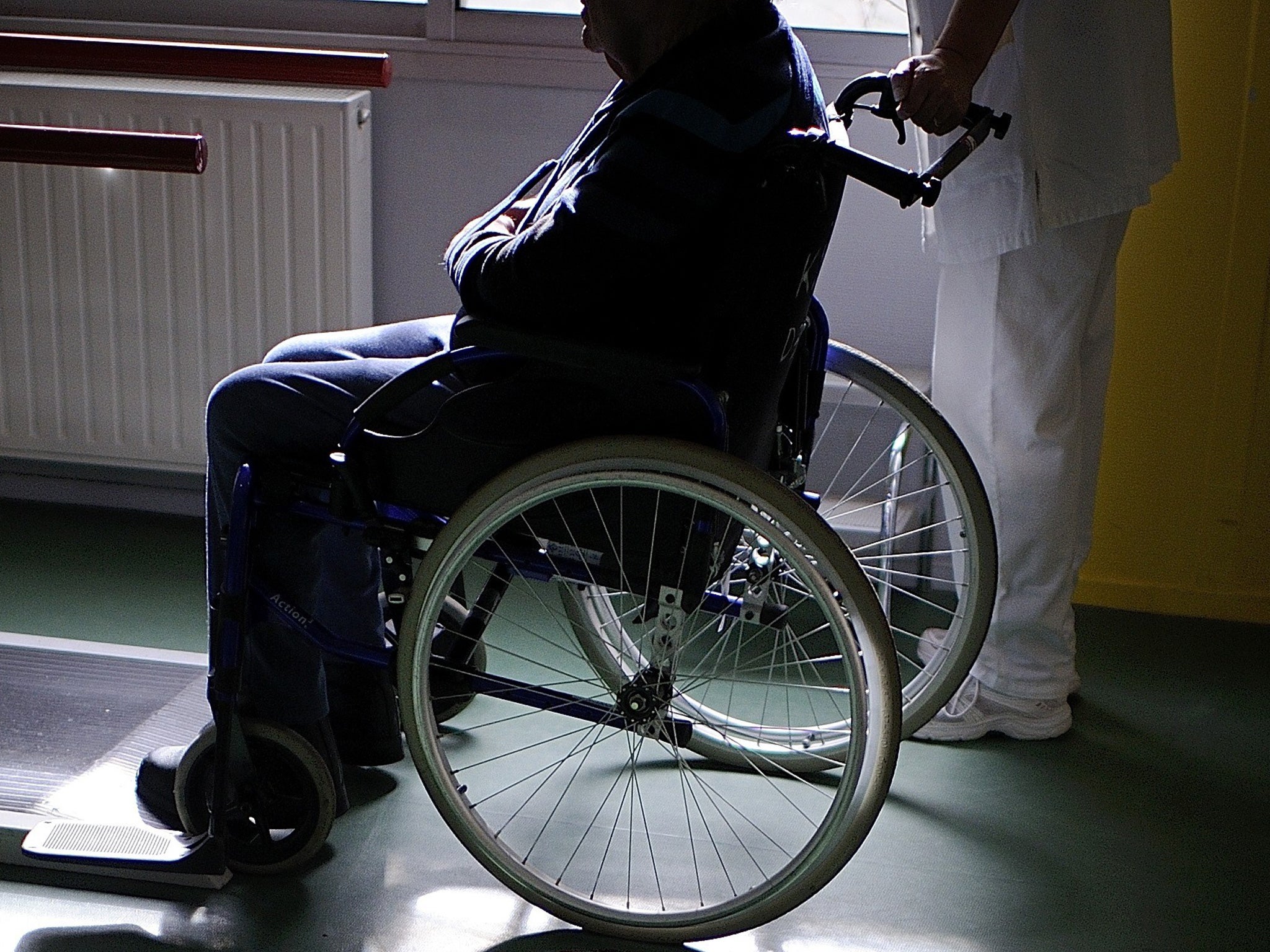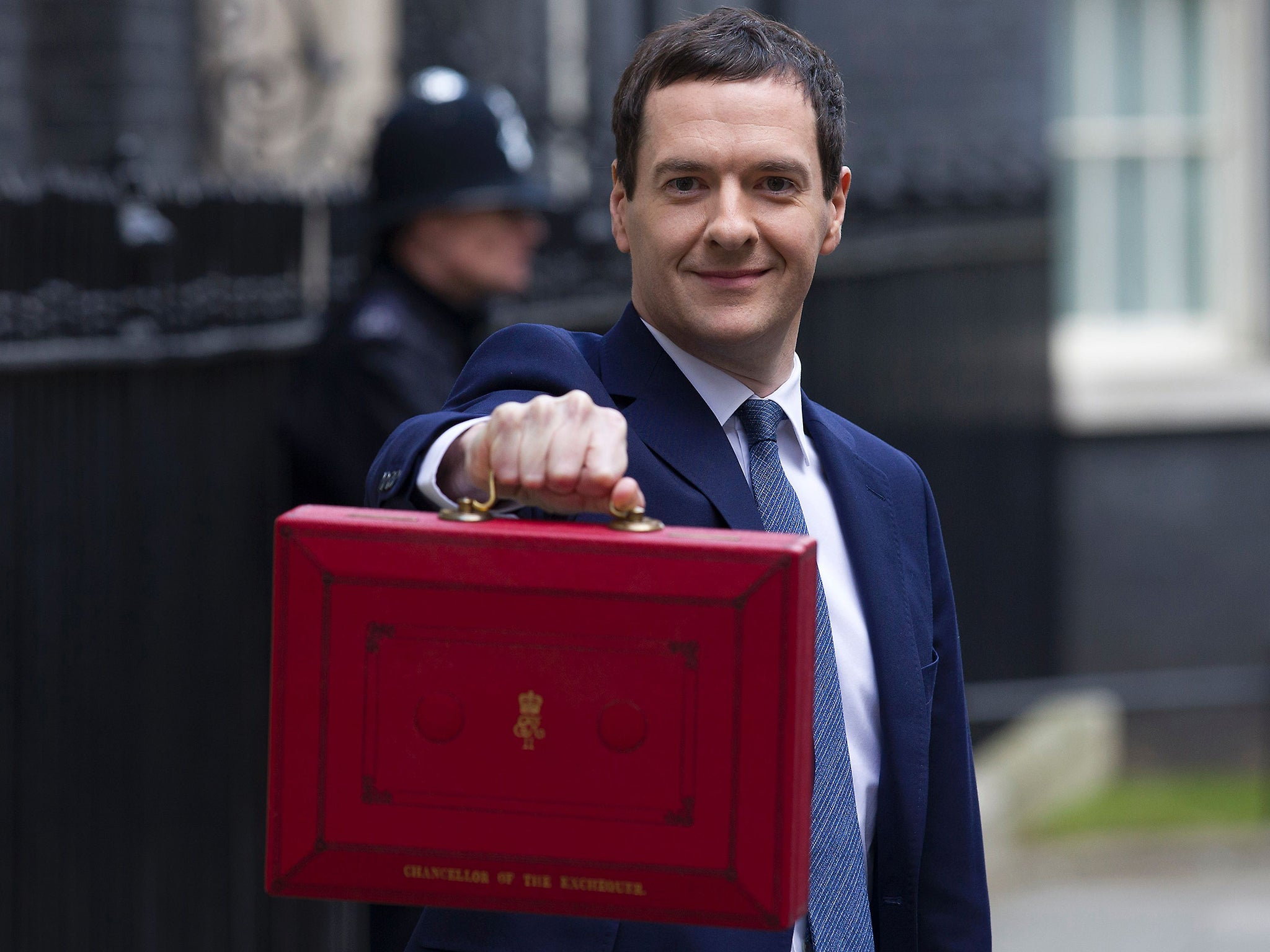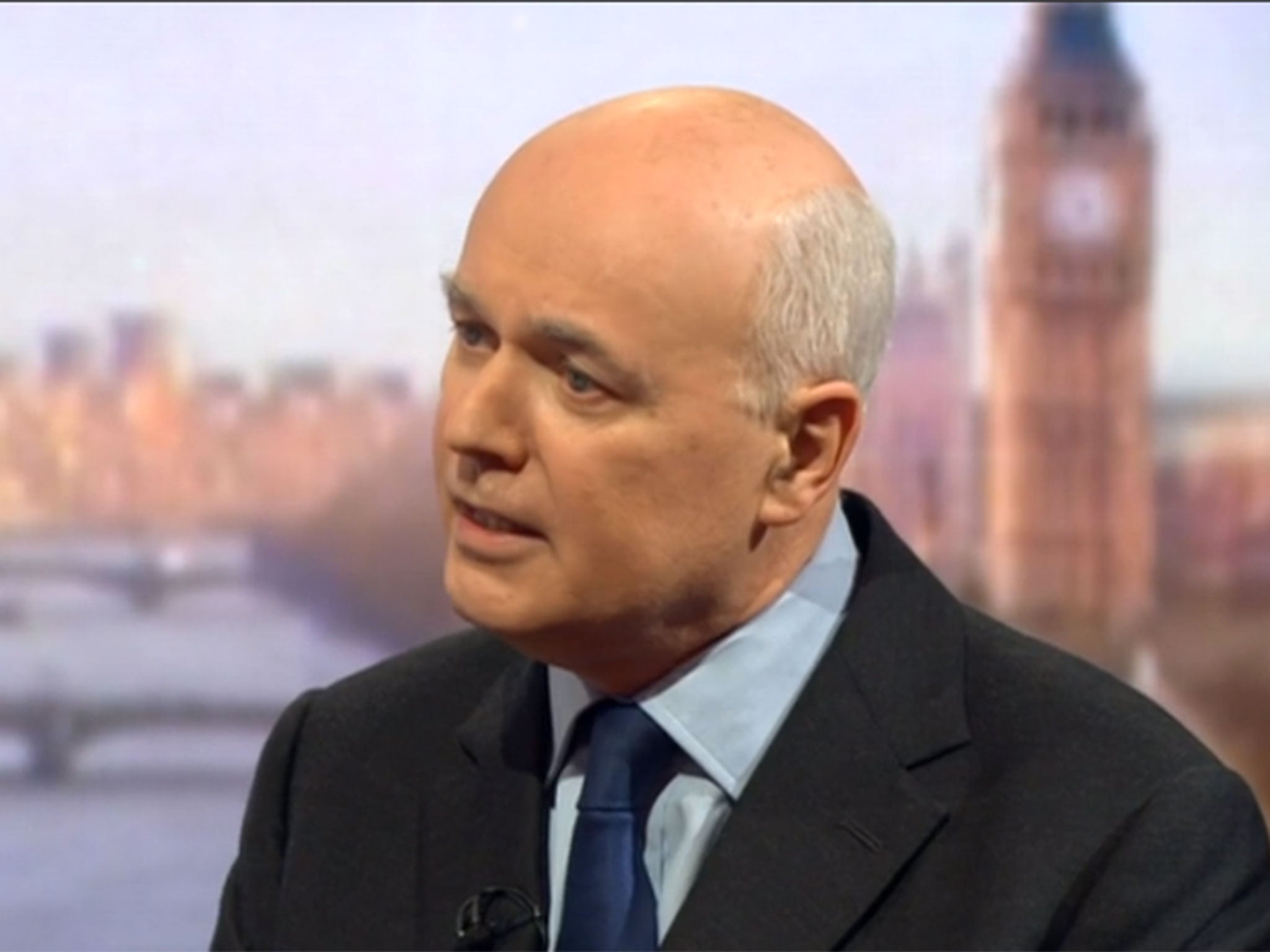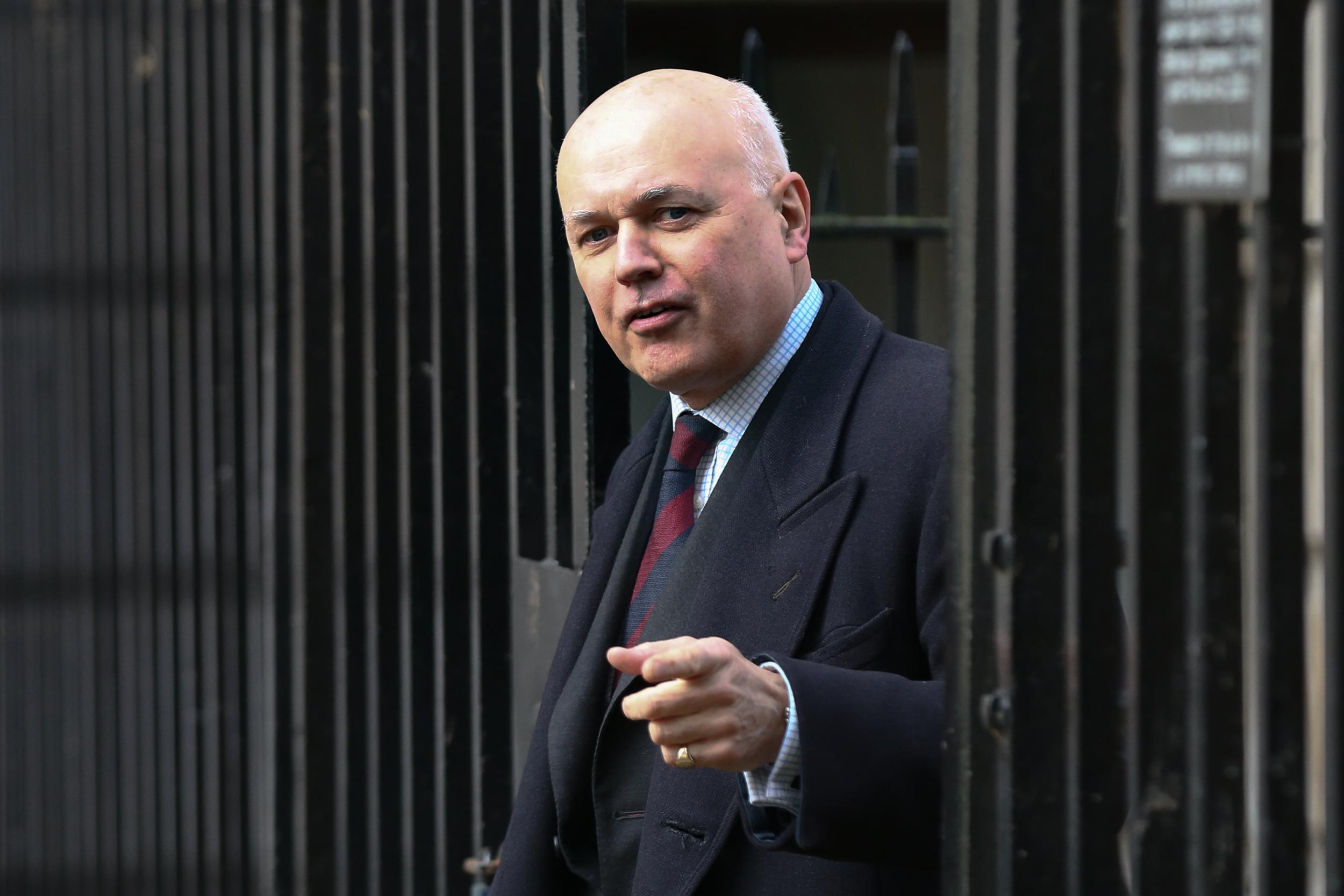Your support helps us to tell the story
From reproductive rights to climate change to Big Tech, The Independent is on the ground when the story is developing. Whether it's investigating the financials of Elon Musk's pro-Trump PAC or producing our latest documentary, 'The A Word', which shines a light on the American women fighting for reproductive rights, we know how important it is to parse out the facts from the messaging.
At such a critical moment in US history, we need reporters on the ground. Your donation allows us to keep sending journalists to speak to both sides of the story.
The Independent is trusted by Americans across the entire political spectrum. And unlike many other quality news outlets, we choose not to lock Americans out of our reporting and analysis with paywalls. We believe quality journalism should be available to everyone, paid for by those who can afford it.
Your support makes all the difference.A rapidly escalating civil war within the Conservative Party has dominated the news as the ongoing row over cuts to disability benefits threatened to plunge the Government into crisis.
Here's what you need to know about the benefit cut - which the Government has signalled a U-turn on - and how it sparked the bitter conflict at the top of the ruling party.
What is PIP?

PIP – or the Personal Independence Payment – is one of two of the Government’s main disability benefits.
It was introduced in 2013 by the Conservative-Liberal Democrat Coalition government to replace the older Disability Living Allowance and is meant to help with the extra costs of being disabled.
Unlike Employment and Support Allowance (ESA), the other main sickness benefit, PIP is not means tested and is instead paid out based on the severity of a claimants disability or long-term illness.
What did the Government want to cut?

PIP works by awarding “points” to claimants based on how their disability affects their life. The more points a person gets under the claim, the higher their payment is to help cover the costs of their disability.
The Government planned to halve the number of points a person gets in the assessment for having to use specially adapted aids and appliances. This would effectively reduce the payments for certain people who no longer crossed the threshold.
The Budget said the cut would save £4.4 billion by 2020. The Institute for Fiscal Studies says this cut would have seen 370,000 disabled people lose an average of £3,500 a year.
Why did the Government want to make this cut?

The Government asked a former senior DWP official to conduct an investigation into whether PIP appliance payments were working properly.
He said they were not, citing untested anecdotal evidence from the DWP’s own assessment staff. The assessors had apparently believed more people were coming forward with appliances than they had previously expected to.
“Anecdotally, the Review heard from some case managers who felt they saw a higher than expected number of assessment reports where aids and appliances were used in justifications,” the relevant part of the report says.
“Due to limitations in available published data, the Review has not been able to test this.”
The DWP says it subsequently looked at 400 cases and found that appliances led to “low to nil on-going extra daily living costs” and decided to cut.
It consulted on the change, and disability charities said it would be a very bad idea and lead many people with disabilities struggling to live independent lives.
These decisions were all made against the backdrop of the Government having pledged in its manifesto to cut the social security budget by £20 billion in order to reach its self-imposed target.
The suspicion that the Government just wanted to cut money will remain – especially after Iain Duncan Smith’s resignation.
Why have they U-turned?

On Friday night Iain Duncan Smith, who as Work and Pensions Secretary was in charge of the reforms, resigned.
Mr Duncan Smith claimed he was not in favour of the cuts to begin with and had been forced into them to meet the Government’s welfare spending cap – another self imposed target.
His quitting followed a number of backbench Tory MPs voicing opposition to the cuts and Labour saying they would call a vote on them – that the Government might have expected to lose.
On Thursday evening the Government had signaled a possible U-turn when Education Secretary Nicky Morgan went on the BBC’s Question Time programme and said the cuts were just a “suggestion” and that they were still being consulted on.
The next morning sources close to Mr Duncan Smith angrily told the BBC that a U-turn was not what the DWP or Downing Street had been discussing.
That Friday evening Mr Duncan Smith quit – and on Sunday he went on the Andrew Marr Show and tore into the Government for balancing the books on the back of the disabled.
Tory ministers and MPs took sides on social media and posted criticism of each other.
What’s clear is that it took significant pressure from inside the Tory party to force a U-turn – disability charities had been warning about the changes for months but their cried had apparently fallen on deaf ears.
The Government may be giving the impression that the U-turn was to quell the looming Tory civil war – and not actually because they had been convinced the cuts were a bad idea.
What will be cut instead?

The Government hasn’t said what it will cut instead, if anything. In reality the Government doesn’t have to cut anything, because its spending targets are self-imposed and probably excessive.
But the Chancellor George Osborne has invested a lot of political capital in meeting his self-imposed deficit targets and is already struggling to hit them.
Michael Howard, former Tory leader, warned this morning that the Government had a manifesto commitment to slash welfare by £20 billion – hinting that the cuts would likely come out of other areas of social security.
Labour leader Jeremy Corbyn has proposed cancelling the Government’s cuts to corporation tax and capital gains tax, which actually cost roughly the same amount of money by giving it to richer people instead of cutting it from the disabled.

Join our commenting forum
Join thought-provoking conversations, follow other Independent readers and see their replies
Comments